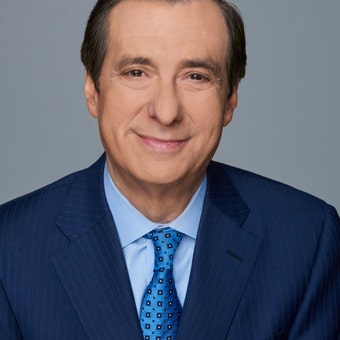Naomi Osaka unleashed a blistering serve, aimed directly at the press.
But what came back at her was a barrage of criticism that wound up knocking her out of a major tournament and, for now, the game of tennis itself.
In the process, the 23-year-old superstar revealed that she is suffering from depression, triggering a debate over what a fabulously successful professional athlete owes the media and whether journalists contribute to an unhealthy atmosphere.
In pulling out of the French Open — after being fined $15,000 for blowing off an initial press conference — Osaka said: "The truth is that I have suffered long bouts of depression since the U.S. Open in 2018 and I have had a really hard time coping with that."
I was rough on Osaka when she first announced she would skip the obligatory press sessions in France for her "mental health." It seemed like such a snowflake move. How could an athlete be tough enough to win major championships and yet be intimidated by a roomful of reporters?
After all, the woman earned more than $50 million in endorsements last year, making her the highest-paid female athlete. Doesn’t she get that the media turned her into a worldwide celebrity — with mostly positive coverage, by the way – and a highly bankable star?
Osaka did say in her post to 2.3 million Instagram followers that "the tennis press has always been kind to me" and "I wanna apologize especially to all the cool journalists who I may have hurt."
BIDEN, SEEN AS INCREASINGLY LIBERAL, WOULD EXPLODE THE DEFICIT WITH NEW BUDGET
But her confession of depression has made me reconsider the situation. It’s a reminder that even fame and fortune can’t necessarily bring happiness. And that the decision by this self-described introvert to avoid the press was just a hint that she is struggling to cope with the pressures of being a lone performer in a highly competitive sport. So she’s taking a break from tennis.
After her first-round win Sunday, Osaka did answer questions from an on-court interviewer and from the Japanese broadcaster Wowow, with which she is under contract. Clearly, she can finesse these situations. In fact, what propelled her to stardom was the grace with which she handled Serena Williams’ anger and penalties that gave her that first big win three years ago at the Open in New York.
Tennis officials came down on her hard, not just with the fines, a rounding error for Naomi. She refused to engage with them, leading to threats she could be ejected from the French Open and barred from other Grand Slam tournaments.
Osaka drew praise from Alexandria Ocasio-Cortez and Kamala Harris’ niece Meena, among others, and is no stranger to politics. Last year she pulled out of a semifinal match to protest the police shooting of Jacob Blake in Wisconsin, saying "as a black woman I feel as though there are much more important matters at hand," and wearing masks emblazoned with victims’ names. The Western and Southern Open briefly suspended play.
Mari Osaka, Naomi’s sister, said her sibling plays poorly on clay surfaces such as at the French Open, and she wanted to "block everything out" by not talking to reporters who would inevitably question her on that subject.
Tennis players are divided. Serena Williams said dealing with the media made her stronger. "I feel for Naomi," she said. "Not everyone is the same. I’m thick. Other people are thin."
SUBSCRIBE TO HOWIE'S MEDIA BUZZMETER PODCAST, A RIFF OF THE DAY'S HOTTEST STORIES
Rafael Nadal told reporters that "without the press, without the people who normally is traveling," who are "writing the news and achievements that we are having around the world, probably we will not be the athletes that we are today." They wouldn’t "have the recognition that we have around the world, and we will not be that popular, no?"
And that’s match point. Osaka says she never wanted to be a distraction and that "my message could have been clearer." I give her credit for speaking out about an excruciatingly personal subject. But if you choose to be a pro athlete, dealing with off-the-court pressures is part of the game.





















